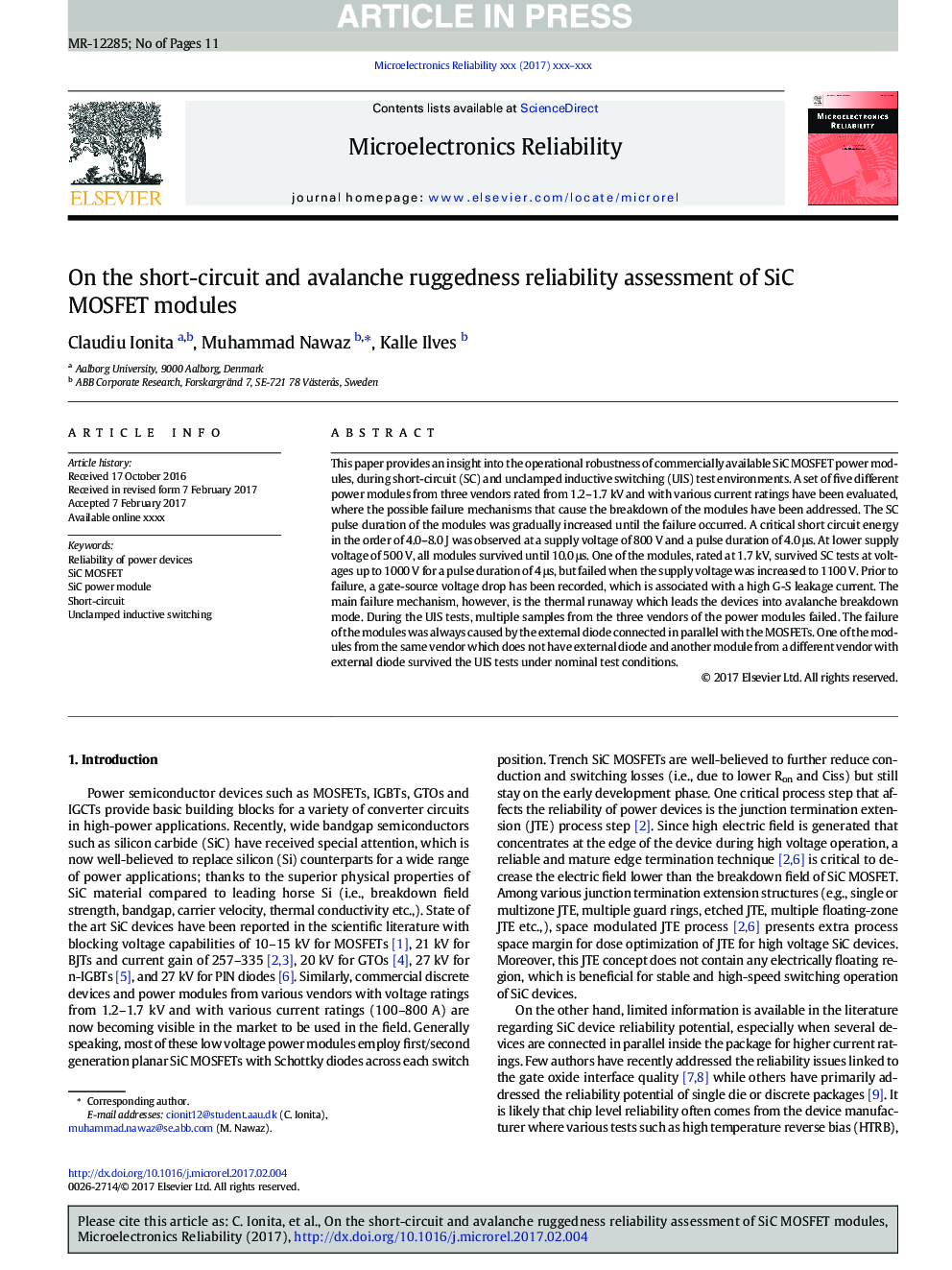| Article ID | Journal | Published Year | Pages | File Type |
|---|---|---|---|---|
| 4971457 | Microelectronics Reliability | 2017 | 11 Pages |
Abstract
This paper provides an insight into the operational robustness of commercially available SiC MOSFET power modules, during short-circuit (SC) and unclamped inductive switching (UIS) test environments. A set of five different power modules from three vendors rated from 1.2-1.7 kV and with various current ratings have been evaluated, where the possible failure mechanisms that cause the breakdown of the modules have been addressed. The SC pulse duration of the modules was gradually increased until the failure occurred. A critical short circuit energy in the order of 4.0-8.0 J was observed at a supply voltage of 800 V and a pulse duration of 4.0 μs. At lower supply voltage of 500 V, all modules survived until 10.0 μs. One of the modules, rated at 1.7 kV, survived SC tests at voltages up to 1000 V for a pulse duration of 4 μs, but failed when the supply voltage was increased to 1100 V. Prior to failure, a gate-source voltage drop has been recorded, which is associated with a high G-S leakage current. The main failure mechanism, however, is the thermal runaway which leads the devices into avalanche breakdown mode. During the UIS tests, multiple samples from the three vendors of the power modules failed. The failure of the modules was always caused by the external diode connected in parallel with the MOSFETs. One of the modules from the same vendor which does not have external diode and another module from a different vendor with external diode survived the UIS tests under nominal test conditions.
Related Topics
Physical Sciences and Engineering
Computer Science
Hardware and Architecture
Authors
Claudiu Ionita, Muhammad Nawaz, Kalle Ilves,
